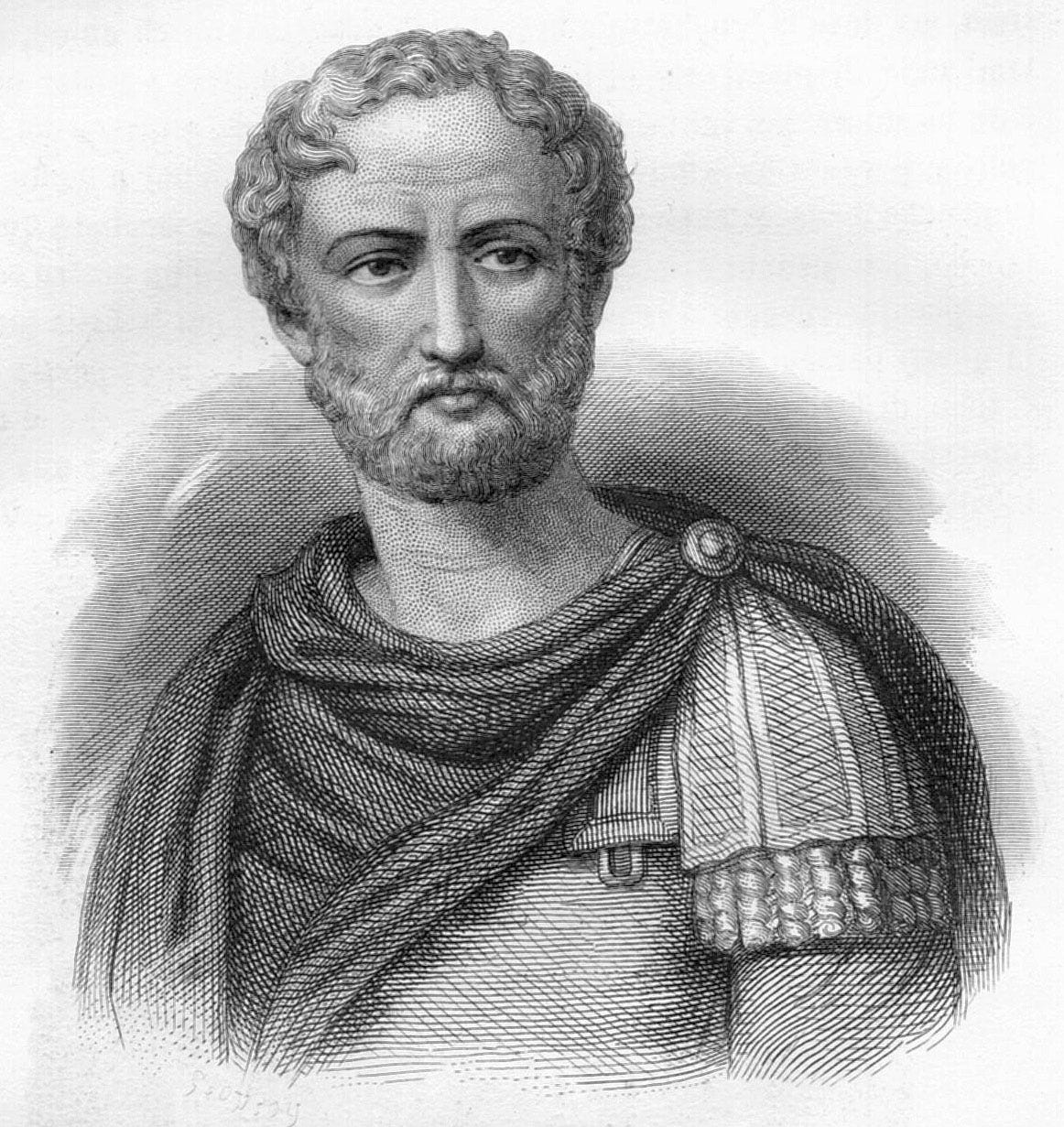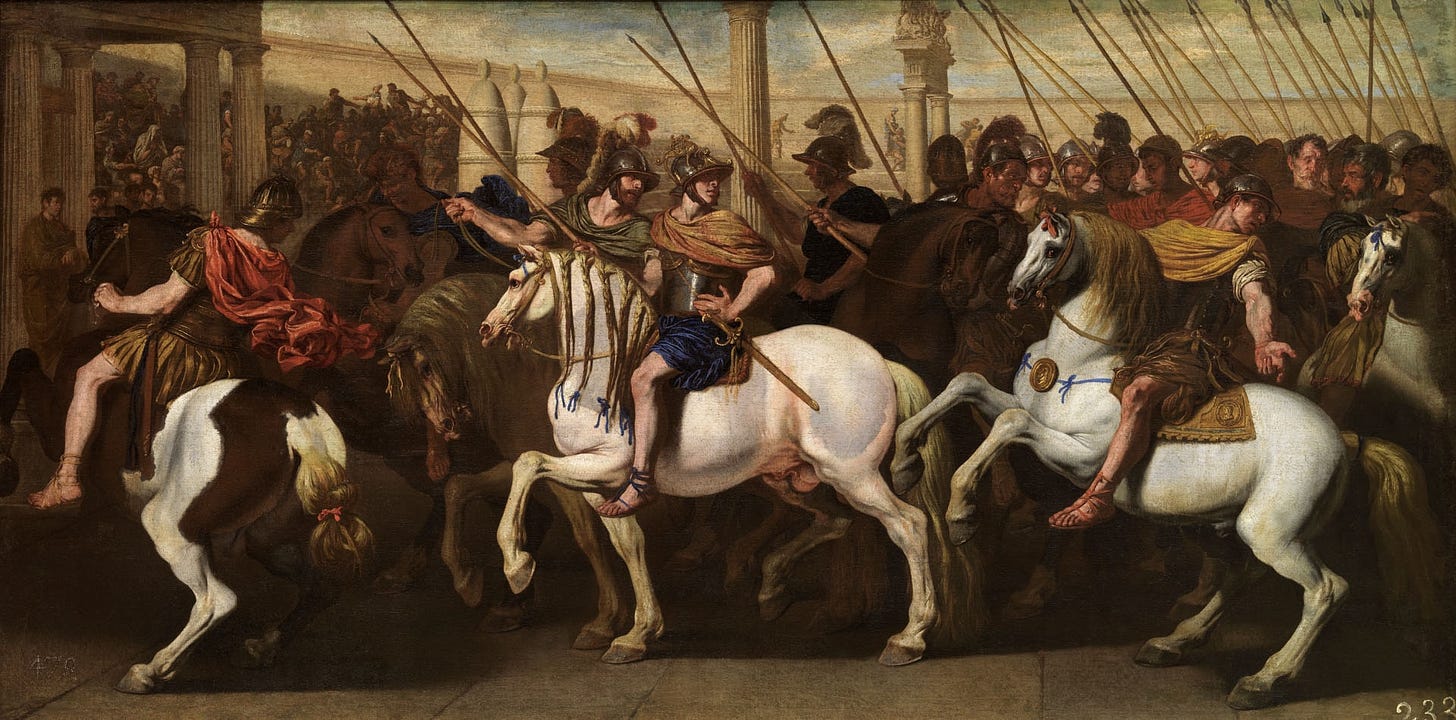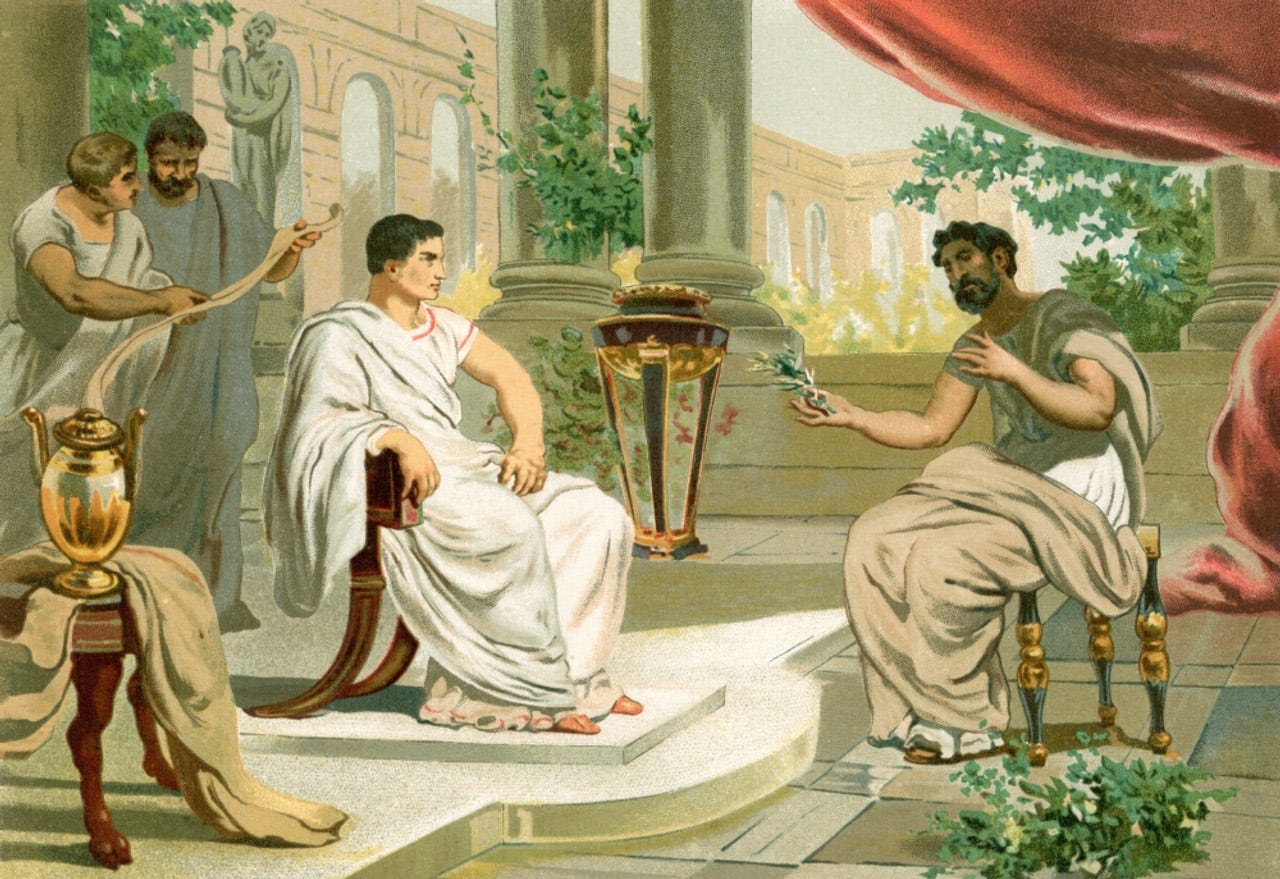Ancient Rome's Greatest Polymath - The Scholar who Died a Hero
Few men lived - or died - quite like the man who authored the first encyclopaedia in the Western world...
There is an inherent tragedy to human curiosity, which has spurred Man to both his greatest discoveries and his most terrible tragedies.
Too little curiosity, and you remain destined for a life of function over purpose. Too much of it, and you are consumed by it. You are led astray as often as you are led forward, and lose sight of the present.
It is this tragedy that has characterised many of the greatest minds of our history. While their curiosity gifted them expertise in a multitude of fields, it so often, too, brought about an agonising conviction on their deathbeds — as indeed happened with Leonardo da Vinci — that they had failed to achieve their potential.
Few even among these learned men, however, would both live and die by the double-edged sword of curiosity quite like Gaius Plinius Secundus. Born on the banks of the world’s most glamorous lake, he would rise through the ranks of the world’s most feared army, serve the emperors of the world’s greatest empire, and follow both his duty and inquisitive nature to death in the world’s most infamous natural disaster.
The life of Gaius — more commonly known as Pliny the Elder — reveals that in the armoury of heroism, one can wield both the pen and the sword. Today, we tell his story, and reveal what you can learn from the valiant life and death of Rome’s greatest polymath.
From the Lake to the Urbs
It is perhaps fitting that the author of the world’s first natural history was born about as far from the urban tendrils of Rome as it was possible to be while still in Italy. At least Italy in the modern sense, for the colony of Novum Comum — today’s city of Como — lay firmly within the historic territory of Gallia Transpadana, or southern Gaul.
The frontier city, established by Julius Caesar, was less than a century old when Pliny was born there, around the year AD 23. Transpadana, likewise, had only formally been enrolled as one of the eleven Regiones of Italy by the Emperor Augustus, less than a generation earlier. Certainly, therefore, the youth of Pliny was rustic indeed by Roman standards.
Two millennia before the elite of the world would populate the many villas along its shores, Lake Como was a purely natural wonder, and a certain fount of inspiration for a boy who, from his lacustrine cradle to his volcanic grave, was consumed by a need to understand the phenomena of this world.
Little is known of his family, save their belonging to the equestrian order, the second tier of the Roman elite behind that which provided the Empire with her senators. As a result, sufficient means existed to send the boy to Rome for his education, possibly during the last years of the tragic reign of the Emperor Tiberius, a man Pliny himself described as tristissimus hominum — ‘the gloomiest of men’.
Following the death of Tiberius in AD 37, however, the ascension of Caligula would be the making of Pliny. For the new Emperor released from prison a certain Publius Pomponius Secundus, a man who had been condemned six years earlier for his ties to the disgraced Praetorian Prefect Sejanus. A man of sharp mind and a talented wordsmith, Pomponius was greatly impressed by the inquiring soul that was Pliny, and the two forged a firm friendship, giving the latter both the means and opportunity to fully indulge his love of learning.
As the political rehabilitation of Pomponius brought him elevation to high office under Caligula and Claudius, and the success of his poetry brought him public celebrity, he acquired such a wealth of connections that Pliny was, by his twenty second birthday, able to take the first step essential to the career of an elite Roman — a military command.
An Officer and a Gentleman
In AD 45 therefore, the young equestrian from Como departed Italy for the wilderness of the Roman frontier, as a military tribune in the province of Gallia Belgica.
Contrary to the stereotype of bookish men, however, Pliny relished army life and his duties. Indeed in this man there was no contradiction at all between these two passions, as he wrote feverishly throughout his deployment, of his deployment. This would be particularly so from AD 47, following the arrival of the most celebrated Roman general of the day, Gnaeus Domitius Corbulo, as the new commander of the armies of the Rhine.
Promoted to praefectus alae, or commander of a cavalry wing, Pliny served on Corbulo’s campaign against the Frisii and Chauci tribes of Germania. An anecdote he would record in his masterpiece, the Natural History, some thirty years later, of the menace posed to Roman vessels by the oaks of Germany blown into the water under high winds (Natural History XVI.2), is almost certainly a personal observation from this very campaign.
Three years later, still in Germania, Pliny likely served on a fresh campaign, this time led against the Chatti tribe by none other than his patron Pomponius. The affair was by all accounts a resounding victory for Rome, buoyed by the rescue from slavery of several elderly veterans who had been captured at the Teutoburg Forest disaster forty one years earlier.
Taking meticulous notes of all he observed, it was in this period that Pliny displayed most perfectly the duality of his interests, devoting the less active winter months to completing a military text, De iaculatione equestri (‘On the Use of the Javelin from Horseback’), and commencing a vast, twenty volume history of all the wars yet waged between the Roman and Germanic peoples. Both works alas are now entirely lost, though the latter was esteemed such that Tacitus explicitly cited it as a source in his own seminal work of history (Annals I.69).
A restless mind, however, could not remain on the peripheries of the world forever…
A Gentleman Scholar

The end of Piny’s decade of military service coincided with the dawn of the reign of the Emperor Nero. It has long been assumed that Pliny devoted the years that followed to scholarship in order to ‘maintain a low profile’. This is however questionable given the extent of his output, as well as his residence in the imperial capital for near the entirety of the Neronian era.
In any case, however, it was in these years that the eccentricity of Pliny the Elder reached its fullest blossom. Following the death of Pomponius, Pliny authored a two volume biography in homage to his memory, while managing a law practice, which he would soon begin to see as an irritating consumption of time that could have been devoted to reading.
His body and spirit honed by the military life, Pliny was well accustomed to brief and disciplined sleep, allowing his formidable productivity to take flight before the sun had even risen. He was for a time fascinated by the subject of education and language, completing under Nero two additional respected works that are once again sadly no longer with us — Studiosus, a six volume work detailing the “the proper training and equipment of an orator from his cradle up” (Pliny the Younger, Epistulae III.5), and Dubii Sermonis, an eight volume study of the ‘Ambiguity of Language’ — in addition to further work on his History of the German Wars, and a thirty one volume history of his own times, continuing an earlier lost history by Aufidius Bassus.
So utterly absorbed by academics that he saw no time for marriage or children, following the sudden death of his brother-in-law he would instead adopt his nephew, Gaius Caecilius, giving the boy his own name as per Roman custom. The boy in question, henceforth known as Pliny the Younger, would follow his uncle in the literary tradition, and it is through his famed letters that much of what we know of Pliny the Elder’s life, his dramatic death, and affairs in the Empire more generally, was revealed.
Indeed one of Pliny the Younger’s letters yields a charming anecdote, detailing his begrudging admiration for his uncle’s work ethic:
“At his side he kept a shorthand writer with a book and tablets, who wore mittens on his hands in winter, so that not even the sharpness of the weather should rob him of a moment, and for the same reason, when in Rome, he used to be carried in a litter. I remember that once he rebuked me for walking, saying, "If you were a student, you could not waste your hours like that," for he considered that all time was wasted which was not devoted to study.”
Pliny the Younger, Epistulae III.5
Not even when he was bathing did Pliny the Elder rest his mind, for while being scrubbed down, he would either be dictating to an assistant, or else listening to a live reading. He once rebuked a friend for halting one such reading to point out a pronunciation error, remarking "Why then did you make him turn back? We have lost more than ten lines through your interruption" (Pliny the Younger, Epistulae III.5).
Nor would he be idle during such readings, for Pliny amassed an entire library’s worth of notes taken during such readings, even in the middle of his austere meals — enough to fill a hundred and sixty books, by his nephew’s count.
With the suicide of Nero in AD 68, however, this ‘splendid isolation’ would come to an abrupt end…
Soldier, Scholar & Statesman
The armies of the Rhine would play a major role in the civil war unleashed in AD 68, remaining loyal to Nero and suppressing the revolt of Gaius Julius Vindex. The Senate, however, then proclaimed Vindex’s ally Galba as Emperor. Nero, declared an enemy of the state, took his own life — and the first civil war of the Roman Empire was unleashed…






